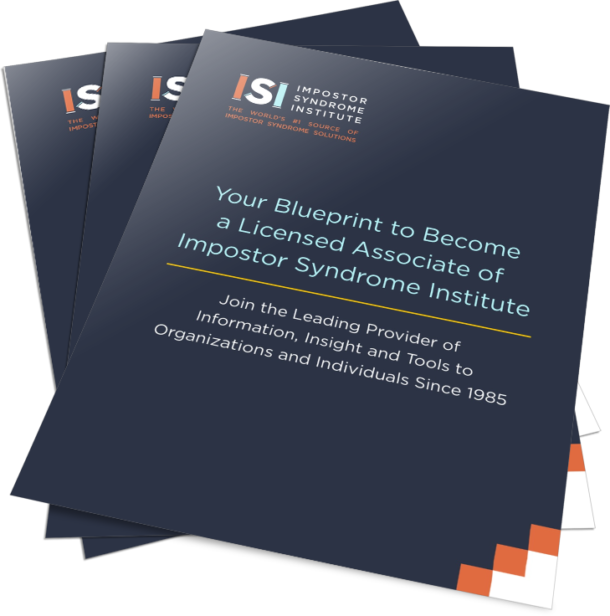Valerie Young, Ed.D. Co-Founder, Impostor Syndrome Institute
It’s been well over 20 years since I identified the five types of impostor syndrome.
The Perfectionist, Expert, Natural Genius, Soloist, and Superhuman each reflect an extreme view of what it means to be competent.*
With competence extremism, there is no middle ground.
Instead, we judge our intelligence or abilities based on where we think we are on a continuum represented by dazzling brilliance at one end and gross inadequacy on the other.
Since our view of competence allows for no in-between, we’re left believing…
“If I don’t know everything, then I know nothing.”
“If it’s not absolutely perfect, it’s woefully deficient.”
“If I’m not operating at the top of my game 24/7, I’m incompetent.”
I understand why we teeter on these outer extremes.
After all, no matter how much we may feel like an impostor, we really do know what it’s like to feel brilliant.
We’ve all experienced those exhilarating times when our brain was firing on all cylinders… when everything just seemed to click… when we thought, “Dang, I’m good!”
Of course, being mere mortals, we also know what it’s like to be unable to think to save our lives.
To feel like you are wearing a big sign that says, “Sorry, brain closed for the day.”

And herein lies the problem.
Because we know we’re capable of brilliance, if we’re not always there, we automatically thrust ourselves to the other end of the continuum.
And once there, we’re very unforgiving.
To be clear, it’s not that extremes don’t exist; they do.
When it comes to achievement, extremes go with the territory.
Whether you’re conducting a scientific experiment, creating art, managing a project, starting a business, or doing anything significant, it’s always an exercise in extremes.
Clarity and confusion, knowing and not knowing, are all part of the creative actualization process.
But once we recognize these extremes for what they are, we can accept our inevitable low points without self-incrimination.
In reality, even the brightest and most talented among us spend most of their waking hours smack in the middle of the competency scale.
Just like me and you.
When you feel yourself sliding into competence extremism, recognize it for what it is.
Then make a conscious decision to stop and savor those exhilarating mental high points and forgive yourself for the inevitable lulls.
That’s what Tina Fey does. “The beauty of the impostor syndrome,” said Fey, “is you vacillate between extreme egomania, and a complete feeling of: ‘I’m a fraud! Oh god, they’re on to me! I’m a fraud!’ So you just try to ride the egomania when it comes and enjoy it and then slide through the idea of fraud.”
For a more detailed description of each Competence Type, download a free copy of Chapter 6: The Competence Rulebook for Mere Mortals from The Secret Thoughts of Successful Women: Why Capable Women and Men Suffer from Impostor Syndrome and How to Thrive in Spite of It.
Click here for some related do’s and don’ts of coaching people with impostor syndrome.




